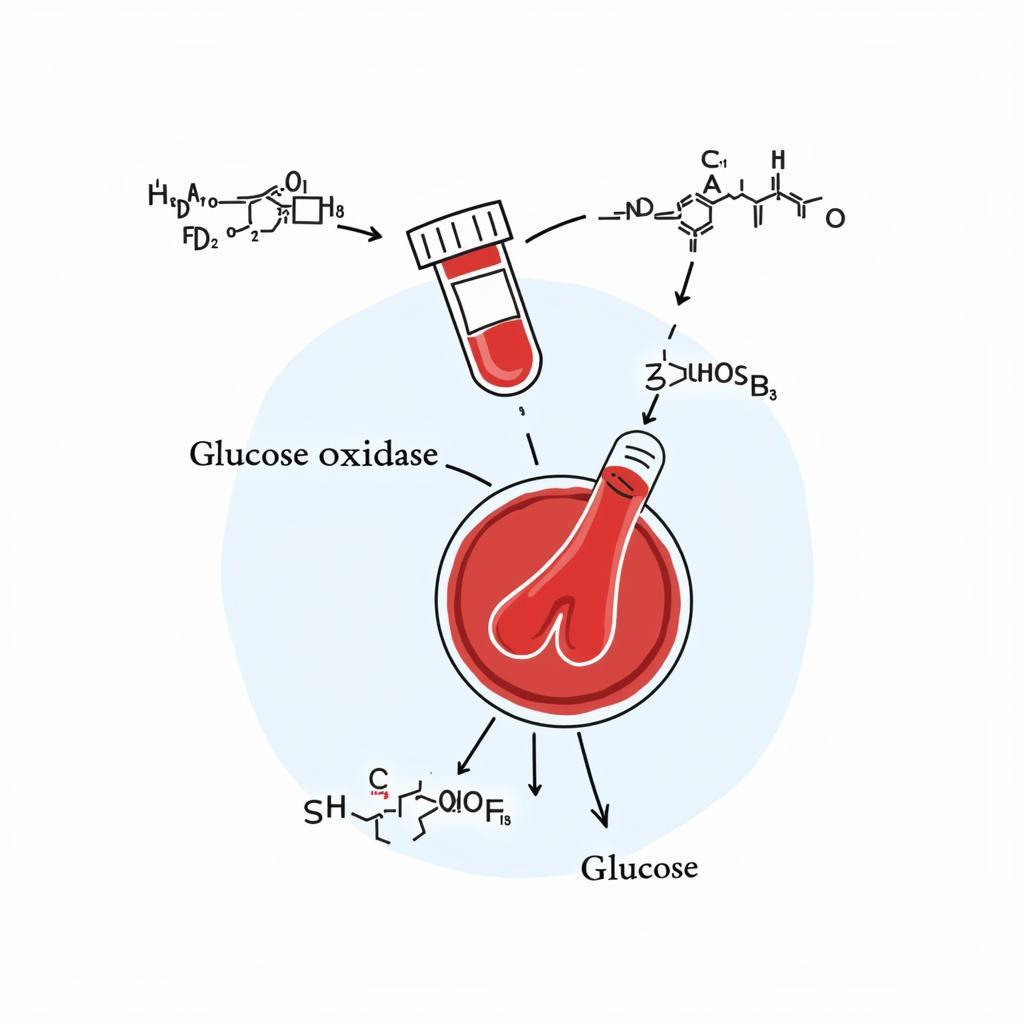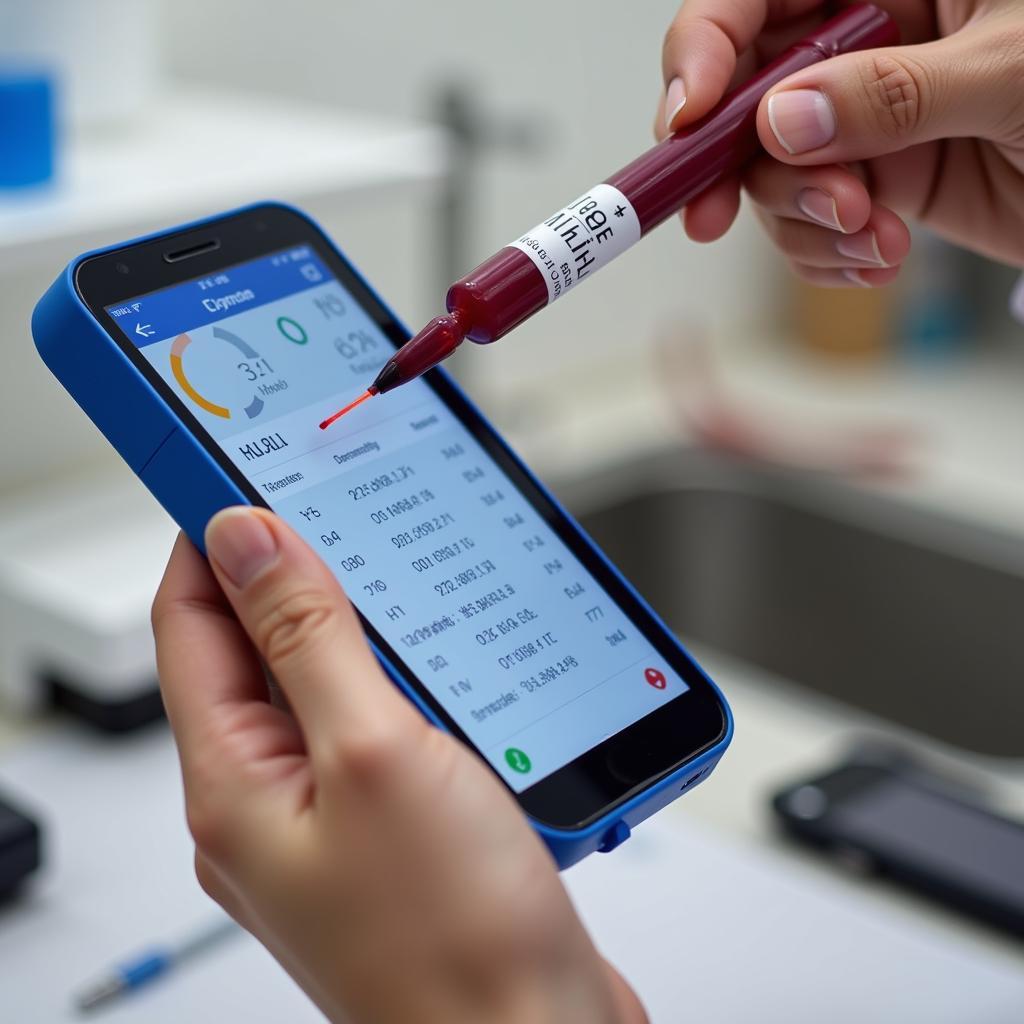Enzymes as reagent and diagnostic tools are essential components of modern laboratory practices. From catalyzing reactions to detecting diseases, these biological molecules offer unparalleled specificity and sensitivity. This article explores the diverse roles of enzymes in the lab, examining their applications as reagents in various assays and as diagnostic tools for identifying and monitoring medical conditions.
Enzyme Magic: Understanding their Role as Reagents
Enzymes, acting as biological catalysts, accelerate chemical reactions without being consumed themselves. This characteristic makes them invaluable reagents in numerous laboratory applications. They exhibit remarkable specificity, targeting particular substrates and reactions, thus minimizing unwanted side reactions and increasing the accuracy of results.
Enzymes in Biochemical Assays: The Workhorses of the Lab
In biochemical assays, enzymes are used to quantify substances, study reaction kinetics, and analyze metabolic pathways. For example, glucose oxidase is commonly used to measure glucose levels in blood samples. The enzyme catalyzes the oxidation of glucose, producing a detectable signal proportional to the glucose concentration.
- Specificity: Enzymes ensure accurate measurements by targeting only the desired analyte.
- Sensitivity: Even minute quantities of a substance can be detected using enzyme-based assays.
- Versatility: Enzymes can be adapted for a wide range of assays, from simple colorimetric tests to complex electrochemical analyses.
 Glucose Oxidase Enzyme Reagent in Biochemical Assay
Glucose Oxidase Enzyme Reagent in Biochemical Assay
Enzymes in Molecular Biology: Cutting, Pasting, and Copying
Enzymes play a critical role in molecular biology techniques such as PCR, cloning, and gene editing. Restriction enzymes, for instance, act as molecular scissors, cutting DNA at specific sequences. DNA ligase, on the other hand, functions as molecular glue, joining DNA fragments together.
- Precision: Restriction enzymes enable precise manipulation of DNA molecules.
- Efficiency: Enzymes like DNA polymerase enable rapid amplification of DNA sequences in PCR.
- Essential Tools: Enzymes are fundamental to genetic engineering and recombinant DNA technology.
Enzymes as Diagnostic Tools: A Window into Health
Beyond their use as reagents, enzymes are also powerful diagnostic tools. Changes in enzyme levels in body fluids can indicate the presence and severity of various diseases.
Enzyme Markers of Disease: Early Detection and Monitoring
Certain enzymes are released into the bloodstream when specific tissues or organs are damaged. Measuring these enzyme levels can provide valuable diagnostic information. For example, elevated levels of creatine kinase (CK) can indicate a heart attack, while increased amylase and lipase levels suggest pancreatitis.
- Early Detection: Enzyme markers can help detect diseases in their early stages, even before symptoms appear.
- Disease Monitoring: Tracking enzyme levels over time can help monitor disease progression and treatment effectiveness.
- Non-invasive Diagnosis: Many enzyme tests can be performed using readily available blood samples.
“Enzyme-based diagnostics offer a powerful and minimally invasive way to assess patient health. The specificity of these tests allows for targeted diagnosis and personalized treatment plans,” states Dr. Emily Carter, a leading clinical biochemist at the University of California, San Francisco.
The Future of Enzyme-Based Diagnostics: Point-of-Care Testing and Beyond
Advancements in biotechnology are driving the development of new enzyme-based diagnostic tools, including point-of-care tests and biosensors. These technologies offer the potential for rapid, on-site diagnosis and personalized medicine.
- Point-of-Care Testing: Portable devices using enzyme-based assays allow for rapid diagnosis at the patient’s bedside or in remote settings.
- Biosensors: Enzyme-based biosensors offer continuous monitoring of biomarkers, providing real-time information about a patient’s health.
- Personalized Medicine: Enzyme assays can be used to tailor treatment strategies based on an individual’s specific enzyme profile.
 Point-of-Care Enzyme-Based Diagnostic Test
Point-of-Care Enzyme-Based Diagnostic Test
Conclusion: The Power of Enzymes in the Laboratory
Enzymes as reagent and diagnostic tools are indispensable components of modern laboratories. Their unique properties, including specificity, sensitivity, and versatility, make them invaluable for a wide range of applications, from biochemical assays and molecular biology techniques to clinical diagnostics and personalized medicine. As research continues to uncover new enzyme functions and develop innovative technologies, the future of enzyme-based tools in the laboratory holds immense promise for advancing scientific discovery and improving human health. For any further assistance or inquiries, please connect with us at ScanToolUS. Call us at +1 (641) 206-8880 or visit our office at 1615 S Laramie Ave, Cicero, IL 60804, USA.
FAQ
- What are enzymes?
- How are enzymes used as reagents in the laboratory?
- What are some examples of enzyme-based diagnostic tests?
- What are the advantages of using enzymes in diagnostic tests?
- What is the future of enzyme-based diagnostics?
- How can I learn more about specific enzyme applications in my field?
- What are some common challenges associated with using enzymes in the laboratory?


